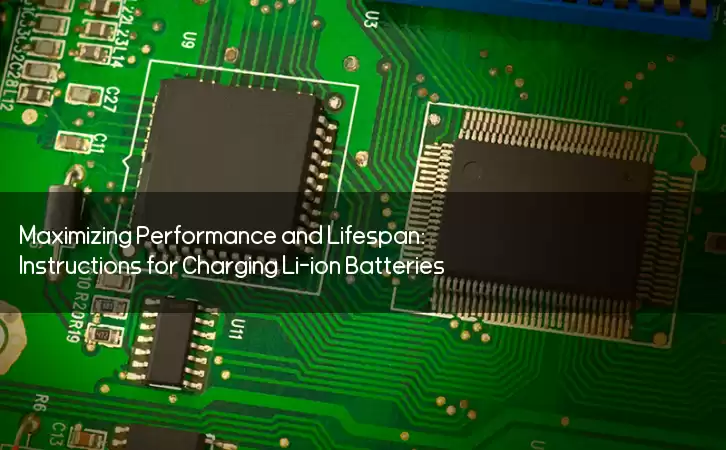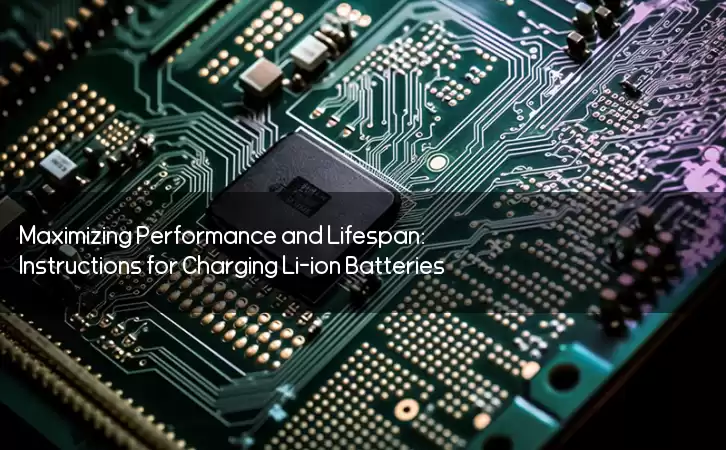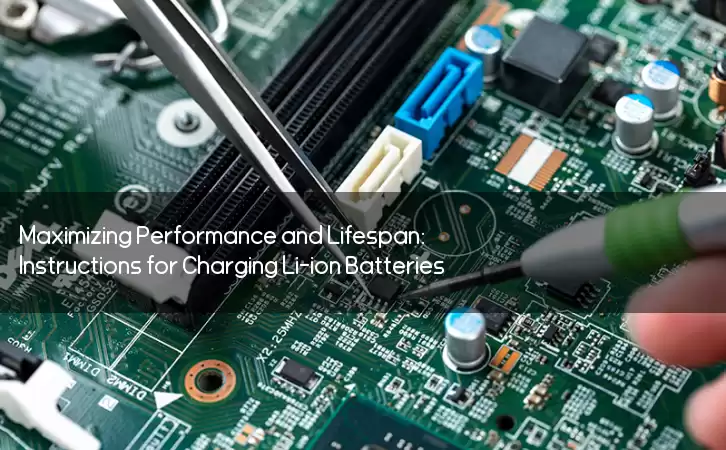Information Center
Maximizing Performance and Lifespan: Instructions for Charging Li-ion Batteries
Published:2023-06-21 10:31:58 Author:Green WCND Views:88Li-ion Battery Charger Instructions

The Lithium-Ion Battery, commonly referred to as the Li-ion battery, is an increasingly popular energy storage solution due to its high energy density, long cycle life, and low self-discharge rate. With more and more devices and applications relying on Li-ion batteries, it is essential to understand how to charge them correctly to maximize their performance and lifespan.

This article will provide instructions on how to charge a Li-ion battery correctly. It will cover the recommended charging methods, charging times, and safety precautions to be taken when handling Li-ion batteries.

Recommended Charging Methods
Li-ion batteries are highly sensitive to overcharging, which can lead to thermal runaway, explosion, and fire. Therefore, it is crucial always to use a charger that is specifically designed for Li-ion batteries. A charger designed for other battery chemistries, such as NiMH or lead-acid, can damage the battery or cause an overcharge.
The recommended charging method for Li-ion batteries is constant current constant voltage (CC-CV). This method involves charging the battery with a constant current until its voltage reaches a predetermined level, after which a constant voltage is maintained until the current drops to a preset level.
CC-CV charging is a standard feature of most Li-ion battery chargers available in the market today. However, it is essential to choose a charger that matches the battery’s capacity and voltage. Overcharging or charging with the wrong voltage can damage the battery and lead to a hazardous situation.
Charging Time
The charging time for Li-ion batteries depends on several factors, including the battery’s capacity, the charging current, and the battery’s state of charge (SOC). Generally, a Li-ion battery should be charged at a rate that is no more than 1C, or one times its capacity.
For example, a 2000mAh Li-ion battery should be charged at no more than 2A. Charging at a higher current can damage the battery and reduce its lifespan.
A fully discharged Li-ion battery typically takes between three to four hours to charge at a 1C rate. However, charging times can vary depending on the charger’s output current and the battery’s SOC. As the battery approaches a full charge, the charging current drops, and the charging time increases.
Safety Precautions
Li-ion batteries can be hazardous if mishandled or charged incorrectly. Here are some safety precautions to consider when handling Li-ion batteries:
1. Always use a charger designed for Li-ion batteries.
2. Do not charge the battery in direct sunlight or at temperatures above 45°C.
3. Avoid overcharging the battery by using a charger with automatic cut-off.
4. Do not expose the battery to water or fire.
5. Do not puncture or crush the battery.
6. Use only high-quality Li-ion batteries from reputable manufacturers.
Conclusion
A properly charged Li-ion battery can provide excellent performance and long-lasting service. By following the recommended charging methods, charging times, and safety precautions outlined in this article, you can ensure that your Li-ion batteries remain safe and reliable. Remember to always handle Li-ion batteries with care and follow the manufacturer’s instructions closely.
Power Adapter Design and Customization Guide for Portable Electric KettlesI. Common Design Types for Portable Electric Kettle Power AdaptersPortable electric ke···
I. Common Design Types of Power Adapters External Independent Type (Most Common) Design: A standalone adapter (e.g., "black brick") connected to the p···
Handheld Vacuum Cleaner Power Adapter Selection GuideIntroductionHandheld vacuum cleaners have become a mainstream tool for household cleaning due to their port···
Drill Power Adapter Selection Guide.drill-container { font-family: Arial, sans-serif; line-height: 1.6; max-width: 800px; margin: 0 auto; padding: 20px; } .dril···





